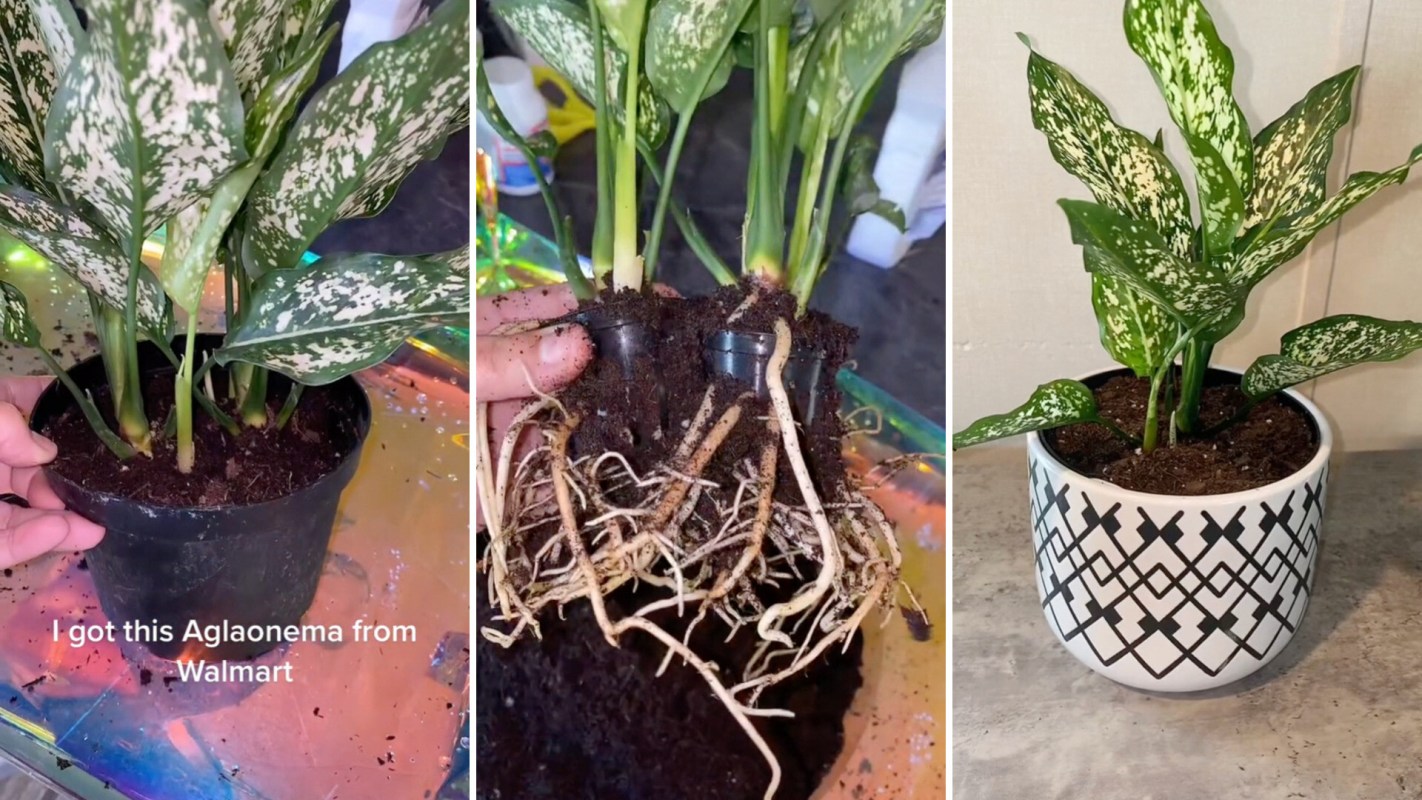After purchasing a plant from Walmart, a Tiktoker shared what they found in the soil.
After some digging, the TikToker discovered their Aglaonema plant was potted in cages, trapping the roots.
@britt.b.91 Make sure to check your plants roots after buying from big box stores. They sometimes have cages around their roots that need to be removed. #planttok🌱 #plantmom #plantcare #aglaonema #yougrowgirl #screammovie ♬ Oh No - Kreepa
"Make sure to check your plant's roots after buying from big box stores. They sometimes have cages around their roots that need to be removed," the Tiktoker warned in the caption.
After carefully cutting away the cages to prevent any damage to the roots, the buyer had two beautiful new plants to repot.
Typically found in the plants of chain stores such as Walmart and Home Depot, these cages are actually net pots used in nurseries to start plants hydroponically — a method of growing without soil. While there are pros and cons to the technique, when plants are mass-produced for larger corporate stores and sold in bulk, the net pots are rarely removed by the nursery presale.
The corporations then put the plants in soil without removing the nets for consistency and efficiency purposes. For example, when potting for resale, each pot gets two cages. It takes the guesswork out of it and helps maintain a consistent product.
It becomes a matter of time management and profit, as nobody in the equation is willing to pay their employees to take the time to remove the nets for the greater good of the plants.
This isn't to say that the companies mentioned are all bad. For example, Walmart has just launched a clean beauty initiative. However, there's always room to grow, and any little thing that can be done to help cool our planet and help plants flourish is better for all of us.
The hydroponic net pots are made of plastic, which degrades into microplastic particles that pollute soil and take hundreds to thousands of years to break down. Until reusable or biodegradable pots are the standard, consider decreasing the demand for these types of plants by shopping at local nurseries and gardens that don't thrive on consumer demands.
Or, better yet, start your very own garden.
The post was met with shock by those who didn't know and empathy by those who had already experienced it themselves.
"Mine too," a Tiktoker commented with a hand-to-the-face emoji.
"Ahhh why do they do that?" another asked.
"Always have to check, you never know," the OP advised in the comments.
Join our free newsletter for easy tips to save more, waste less, and help yourself while helping the planet.









